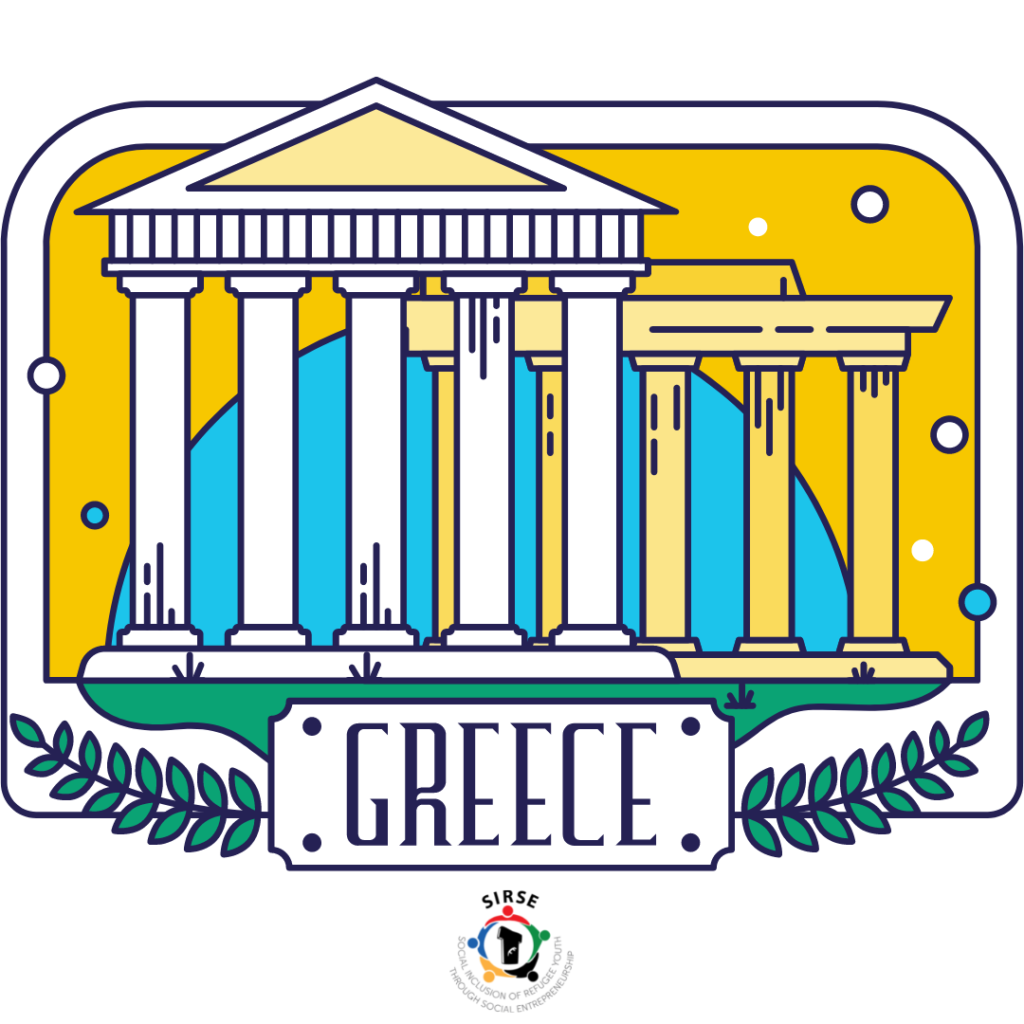Considering the complexity of Greek bureaucracy, below an outline of the initial legislation of Social Enterprises in Greece is presented:
Types of Social Enterprises in Greece
- Women Agrotourism cooperatives(Law 1541/1985)
- Limited Liability Social Cooperatives (Koi.S.P.E.) (Law 2716/99)
- Social Cooperative Enterprises (Koin.S.Ep.) (Law 4019/2011)
- Inclusion Koin.S.Ep.
- Social Care Koin.S. Ep
- Koin.S. Ep of Collective and Productive Purpose
Women Agrotourism Cooperatives
Women agrotourism cooperatives are the most frequent type of social enterprise in Greece. These cooperatives are dedicated to enhancing the local economy and helping women from rural areas to be employed, because most of them are limited to the household activities.
Women’s AgroTourism Cooperatives appeared around 1950, but they did not meet general acceptance. They returned in 1980, when the European Union offered funding and the unemployment phenomenon had just appeared in city centers, combined with the steady depopulation of rural areas. The General Secretariat for Gender Equality contributed to this action. The first Women’s AgroTourism Cooperative was established in 1993 in Pelion of Magnesia region, a historical place, where women gathered in order to promote local homemade products to tourists, since Pelion is a famous touristic location. In 2016, there were 170 Agrotourism cooperatives in Greece. Agritourism activities include homemade products, like jams, traditional confectionery, handmade clothes and jewelry or processing of farm products. These activities offer a small income to rural families, upgrade women status and protect the local economy from blowing.
Koi.SP.E
Koi.S.P.E is the Limited Liability Social Cooperatives (KOISPE) and it was the first form of Social Enterprise which was established by law 2716/1999 These are legal entities under private law (NPID) that have commercial property and constitute Mental Health Units integrated in the Mental sector.
The purpose of Koi.S.P.E is the social and professional integration of people with severe mental and psychosocial problems, conditions that will contribute to their improvement in their treatment and their financial self-sufficiency.
The law of 1999 regulates the ownership and employees of Koi.S.P.E.s as following:
-
At least 35 per cent of the employees must come from the target group of people with mental health problems.
-
Up to 45 per cent of employees can be mental health professionals, while up to another 20 per cent can be other individuals and sponsoring organizations.
Their members have limited liability and can be individuals, adults or minors at least 15 years of age in need of rehabilitation, adult mental health workers and municipalities or other legal entities such as Psychiatric Hospitals, General Hospitals, University Psychiatric Hospitals and Legal Entities with their own Mental Health Units.
Koi.S.P.E’s can receive public property and are exempt from corporate taxes (except VAT). It is also referred that Koi.S.P.E. workers can be paid employees without losing their social benefits. The first Koi.S.P.E. was established in Leros, an island in the Aegean Sea, in November 2002. The island has a psychiatric hospital. Koi.S.P.E involved patients as well as individuals from the local community. It was accepted unanimously and soon after the beginning, it was characterized as good practice example of social and economic reintegration of persons with mental health disorders.
Koin.S.Ep. 4019/2011
The Social Cooperative Enterprise (Koin.S.Ep.) is an urban cooperative for social purposes with limited liability of its members and is managed equally by its members. In Greece Koin.S.Ep were established by 4019/2011 law and is based on the pursuit of benefit for everyone while its profit arises from actions that serve exclusively the society.
Koin.S.Ep. can be established base on the following criteria:
-
Five people (minimum) can participate in the enterprise, which can have a variety of objectives.
-
Shareholders cannot accept profits from the enterprise. Only the employees can be paid, and the rest of the money is shifted in order to be used in the future for new job positions.
-
Legal entities can participate to the Enterprise up to 1/3 of the shareholders.
-
Participation of Local Authority Organizations and Public Law Entities is not allowed
Koin.S. Ep ’s has further categorization, depending on their establishment purpose:
- Inclusion Koin.S.Ep., is the kind of Koin.S.Ep. which aims to integrate people who belong to vulnerable groups, through work.
- Koin.S.Ep. of Collective and Productive Purpose, aims to cover social needs, by providing services and products related to culture, environment, ecology, education, common interest services.
- Social Care Koin.S.Ep., aims to cover needs regarding to the care sector (e.g. health), a provision which is dedicate to specific groups of the population such as elderly, people with disabilities or severe illnesses, children etc.).
Conclusion
The development of social enterprises in Greece offers a way out the crisis thanks to the ability of these entities to mobilize existing human resources to meet collective needs. However, we need to understand that the social economy is not something homogeneous. Not all social enterprises have the same characteristics and are just as effective. Depending on the scope of our social needs interested, e.g. provision of goods, care services, education, the policy it will pursue must be considered separately. NGOs may also be able to give solutions in the field of employment that traditional cooperatives do not; they always offer the same degree.
